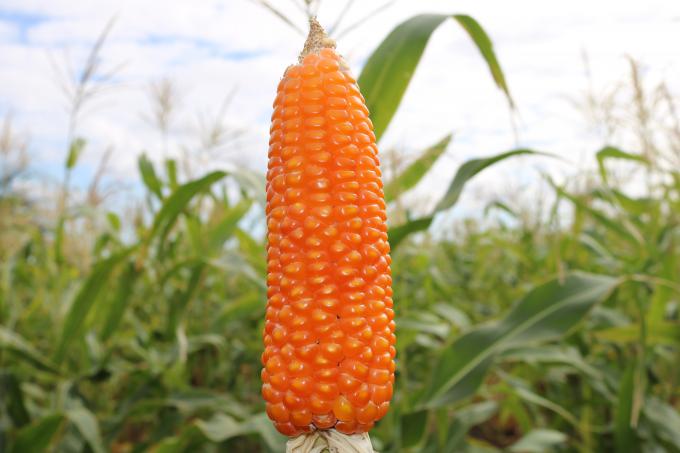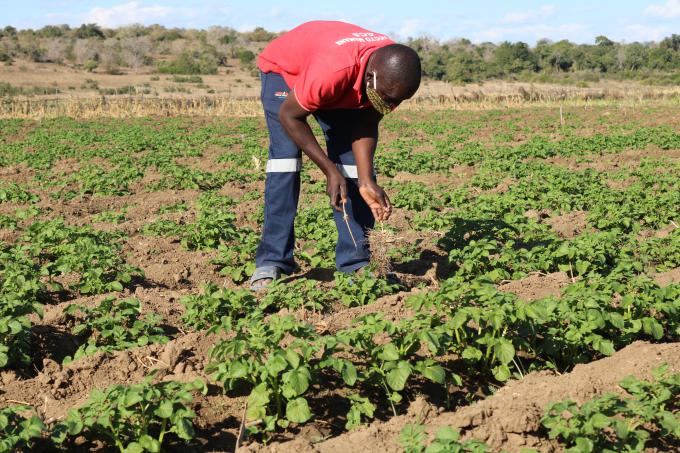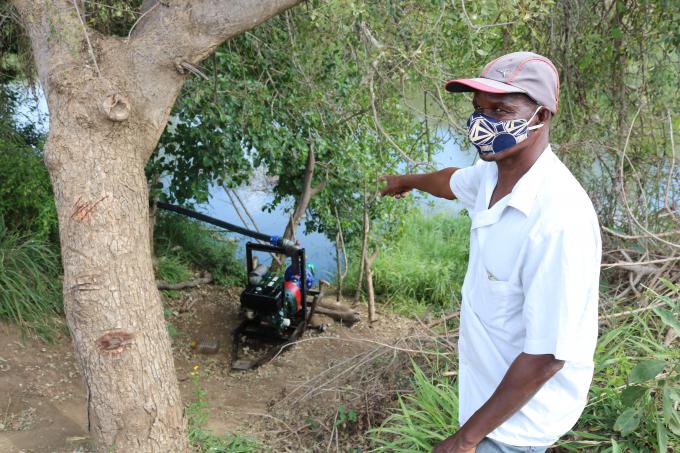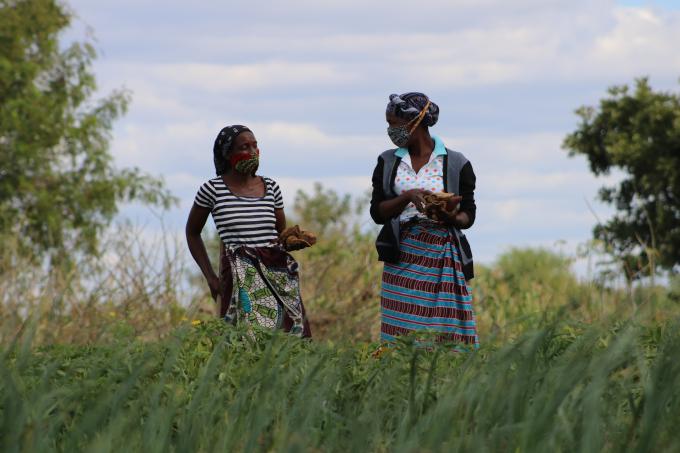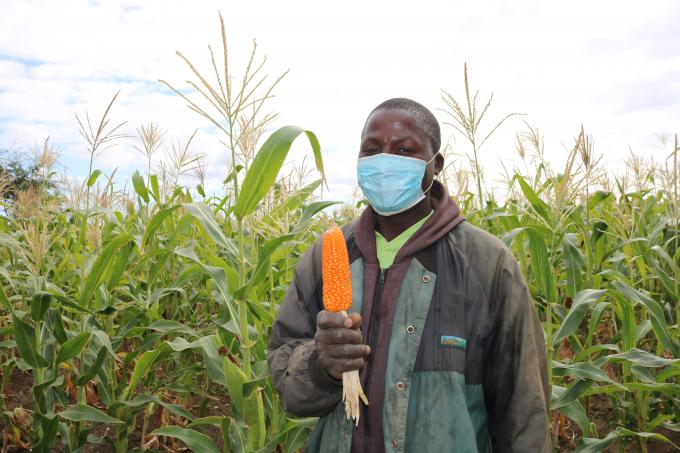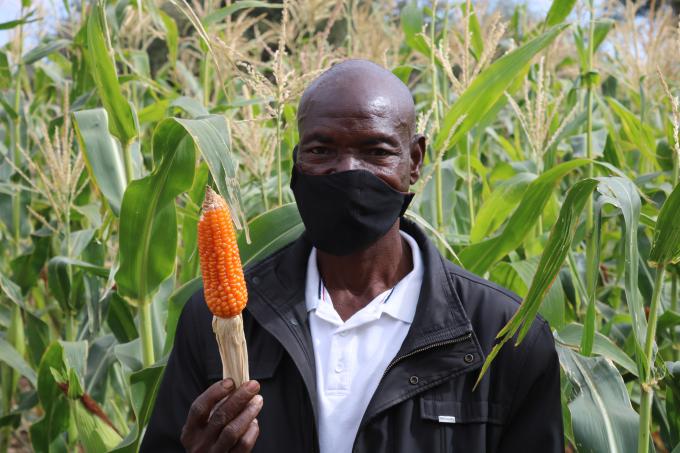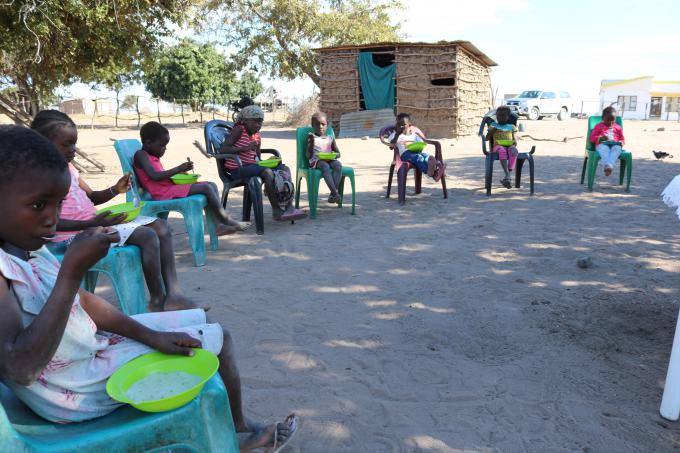Counteracting climate change and bringing hope to those in need
In 2019, Save the Children embarked on the implementation of the Integrated Food Security and Livelihoods (FSL) and Maternal, Newborn and Child Health (MNCH) Project in Gaza province with the intention of strengthening the resilience of communities in the identified implementation areas. The project aims to help communities and families to adapt to climate shocks and climate change in general, by assisting them to build sustainable livelihoods for food and income security. Complimentary to this, the project also implements a maternal, newborn and child health component.
The communities in the six target districts have been hard hit by the cyclical droughts affecting the western and northern districts of Gaza province in southern Mozambique, and as such, it was hard to know how successful the project could be. However, half-way through the project’s three year lifespan, communities and government partners have noted several positive changes in the lives of the beneficiaries, particularly children.
The project’s first challenge was to be innovative, bearing in mind that fact that the districts of Guijá, Mabalane, Massingir, Mapai, Chicualacuala and Chigubo are historically arid. The conditions have been aggravated in recent years by the El-Ninõ drought and by climate change in general. The populations in these districts, who essentially depend on subsistence agriculture for their livelihoods, rarely manage to produce enough for their families and consequentially, experience cyclical episodes of hunger. They are also unable to meet their children's basic health and education needs, resulting in high levels of malnutrition and school dropout.
José Uqueio is the Provincial Coordinator FSL-MNCH Project, funded by Save the Children Italy. He explains that the project is working with 60 groups, organized into peasant’s associations, in each of the six districts. Each district has 10 associations, mostly concentrated in lowland areas, where agricultural activity is more viable. “In the highlands, which are more arid, we have intensified the micro-finance and livestock component. In the agriculture component, we support farmers training and encourage them to work in groups, making them understand that it is easier to produce together than to work separately”, explains Uqueio.
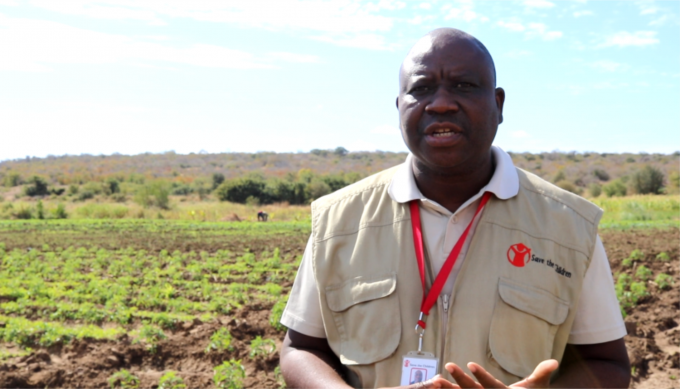
He continues saying that “The project empowers producers in various ways, such as providing inputs, especially certified seeds, and teaches them how to make products for the control of pests and diseases. It also provides irrigation kits to make it easier for these groups to produce all year round and not rely solely on the rain”.
Save the Children introduced crops to improve income. In coordination with the beneficiaries, some crops were selected for commercialization (common beans, kidney beans, potatoes, garlic, tomatoes, and regular and hybrid cabbage) in order to accelerate their access to cash and improve their living conditions.
The project also promotes micro-finance where the agricultural savings can be consolidated and used for revolving credit, allowing the members to buy inputs and other goods.
In order to ensure these initiatives are successful, Save the Children has been working closely with local governments and their institutions.
One of the strategic institutions that helps generate success in the project is the Agrarian Research Institute of Mozambique (IIAM), which supports seed production. According to José Uqueio, this partnership is vital because under normal conditions, producers are unable to find seeds when they need them. This connection ensures the availability of produce because the beneficiaries have access to high quality seed in time for planting.
As well, the project has trained a livestock promoter in each of the 60 target communities to ensure that livestock and poultry farms are free of the diseases that undermine the sustainability of their efforts. The promoters are members of the community who have been trained to identify and treat common diseases affecting cattle, pigs, goats and all small ruminants. Chickens, which form one of the livelihoods for rural women, are seasonally vaccinated against Newcastle disease. Many women make use of the income from the sale of their hens to buy school supplies for their children.
HOW IS THE PROJECT SEEN BY THE BENEFICIARIES?
Arlindo dos Santos Chauque is president of the “Pfuneka Agro-Pecuária” Association, in the locality of Pumbe, Guijá district, one of the 60 groups that the project helped to create. This association, he explains, has an area of 28.5 hectares of land, but its current production capacity only allows the association to effectively farm 7 to 8 hectares with diversified crops. The association primarily cultivates manioc, bananas, tomatoes, onions, garlic, potatoes, lettuce, common beans, cowpeas and spinach.
Cháuque considers that the support of Save the Children was crucial for the establishment of the association. “When we established ourselves as a group, we received seeds and a tractor to prepare the land. We learned various cultivation techniques and the result is what you can see here in this field”, he states. Chaúque remembers that before Save the Children’s intervention, members of the Pumbe community were obliged to turn to other producers in order to have access to the foods that today are available in their own fields. Chaúque adds:
“We used to cross the river to the other bank to buy lettuce or onions or tomatoes. Here we had neither the seed nor the knowledge about producing these vegetables. With this innovation, we no longer have to resort to other communities. We now produce and help other communities. We produce enough for our consumption and commercialization, which allows us to generate income and take care of the needs of our children, such as the purchase of school supplies and produce that we haven't been able to sow yet”.
In the community of Ndonga, in Guijá district, we met Miguel Ngovene, who chairs a local association called “Ku Himela Ntsongwana” (In Defense of the Child). Miguel appreciates Save the Children's efforts for promoting the establishment of associations among the community members, as forming an association has enabled them to obtain arable land on the banks of the Limpopo River. The association is one of three that has benefited from water pumps with high irrigation capacity (up to 10 hectares per day), which allows them to cultivate several crops, from cassava, corn, beets, sweet potatoes, carrots and others. For this farmer, the pump has revolutionized agriculture, since it allows regular irrigation throughout the year.
Miguel Ngovene is supported by Miséria Fenias Massingue, one of the associates and supervisor of the association who additionally says:
“What we produce here helps us and the community in general. Above all, it helps to improve the children's diet. Children eat cassava and the cassava leaf itself because it is one of the main ingredients in improved porridge to combat malnutrition. As for the sweet potato leaf, in addition to normal consumption, we make sweet potato juice, which is very rich in vitamins”.
The association takes responsibility for the most disadvantaged children in the community. With their savings, members look after the children's health and buy their school supplies. Recently, they even mobilized birth registration services to register children who had not yet been registered, according to Miséria Massingue.
Hélio Chongo is a Community Agro-livestock Development Agent (CDA) in Guijá. He recalls that it is necessary to bear in mind the ultimate objective of the project, which is to improve food security in all communities. “Here in Ndonga we help emerging farmers and provide them with inputs such as seeds and fertilizers. We support communities with drought-resistant crops, especially sweet potatoes, thanks to the technical support we receive from IIAM. We produce several varieties with a high protein content and benefit the community with production throughout the year. We also support with water pumps in three communities with the capacity to irrigate 10 hectares per day. We want to be able to ensure the production of different crops to guarantee food security and improve the children's nutrition. With the pumps, a lot has changed,” he notes. One of the challenges that Guijá faces is the scarcity of water, making it difficult to irrigate the fields. Therefore measures such as mulching are used to maintain soil moisture. Using organic materials such as grass around the base of the plants not only helps reduce moisture loss, but it also adds nutrients to the soil as it biodegrades.
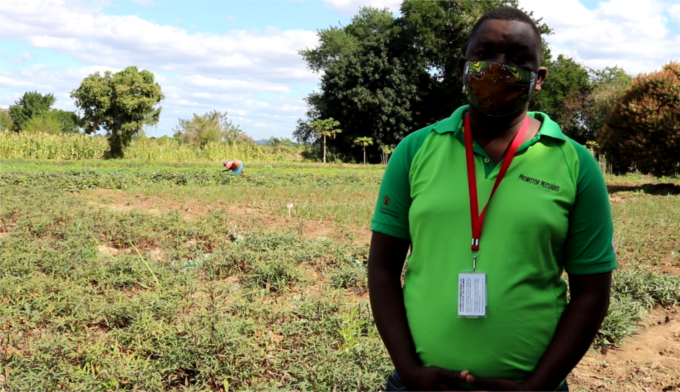
The community of Ndonga also works with Américo Chuva, who is an experienced farmer and who provide technical support to the community, while also cultivating his five hectares of land, where he grows potatoes, cabbage, beans and tomatoes. He, himself, receives seeds from Save the Children and in return, he produces food to support 35 children. He is confident that there will be good production throughout the year.
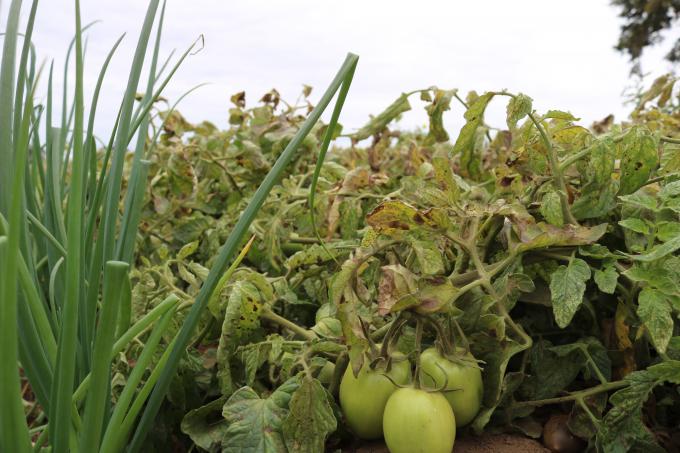
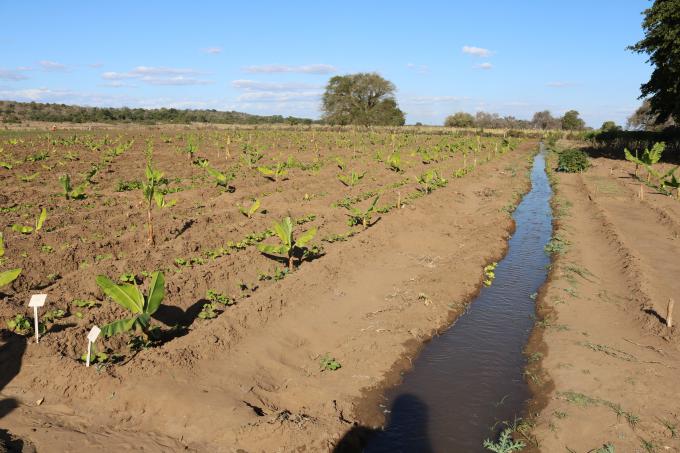
In the district of Mabalane, Save the Children is supporting the Kókwè Peasant's Association that, in addition to the normal crops of maize, lettuce, onion and tomato, they have a 1.5 hectare field for the production of yellow maize certified seed.
Orlando Balói is the President of the Association and he is also confident that the production of corn seed will add value to crop production in the future. "This is beneficial for us peasants because it allows us to have income and enables us to help our children", he stresses, while recognizing the innovations that the FSL-MNCH project added, especially with the allocation of the water pump, which makes it possible to produce crops throughout the year.
With regard to livestock assistance, promoters such as Aventina Chaúque ensure that the animals are healthy by identifying and treating sick animals, as well as organizing vaccination sessions to prevent diseases. “My mission is to vaccinate sick cattle and give them baths to remove ticks. I work with breeders here in the community and serve more than 500 families, including animals outside the community. Before, there was only the traditional methods of treatment and there were many losses”, he notes.
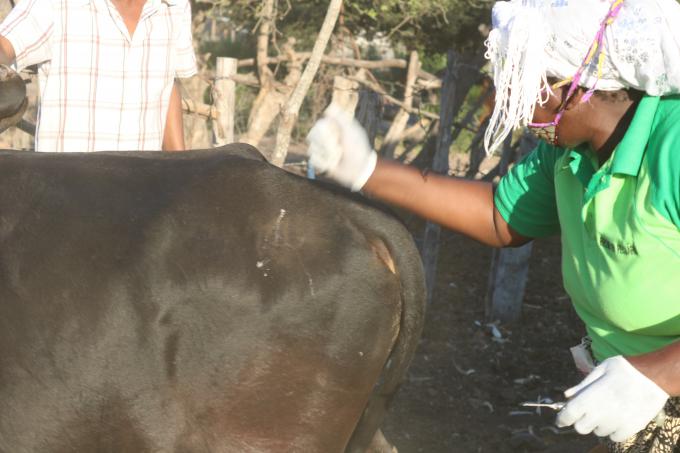
GOVERNMENT EMBRACES THE FSL-MNCH
The National Institute of Agricultural Research (IIAM) of Mozambique is the technical arm of the project, especially with regard to the production of corn seed. To date, the project has 1.5 hectares for seed production in Hókwè, Mabalane district. The genetic material that is used for seed production was provided by IIAM.
Miguel Cumaio, IIAM researcher based in the neighboring district of Chókwè says:
“We have a healthy partnership with Save the Children and it is based on this partnership that we assist the seed production process. In this place [Hokwe] we have a variety called gema, with a yield potential of five tons. This variety has a special feature that is the pro-vitamin A, so it has this yellow color. With this partnership, we hope that Save the Children will be able to make the seed available to several producers and thereby increase productivity”.
IIAM's perspective is that in the medium term the industrial sector will be interested in corn for the manufacture of animal feed and this will boost the economy of the communities involved. This variety of corn is also considered good for children because of its high content of vitamin A..
“We have 1.5 hectares here and we expect to produce four tons. With 4 tons of seed, we can plant 200 hectares and from there get a thousand tons for consumption and commercialization, which is why we believe that this partnership will help a lot to increase corn productivity and yield”, added the IIAM researcher.
For IIAM, this initiative will ensure that there is no shortage of seed, which has been one of the major challenges in that district. The variety being reproduced has a short cycle of 120 days, which means that even if there is little rain, production does not stop. As part of this partnership, communities will soon be sowing another variety of an even shorter cycle called Dimba. This variety has an extra-short cycle of 90 days and is recommended for arid and semi-arid areas.
For the government of Mabalane, Save the Children is a strategic partner for ensuring assistance to families in agricultural and livestock production. Mauro Sumbana, Supervisor of the Agrarian Extension Network in Mabalane and Activities Coordinator for the Agriculture and Fisheries Department, says:
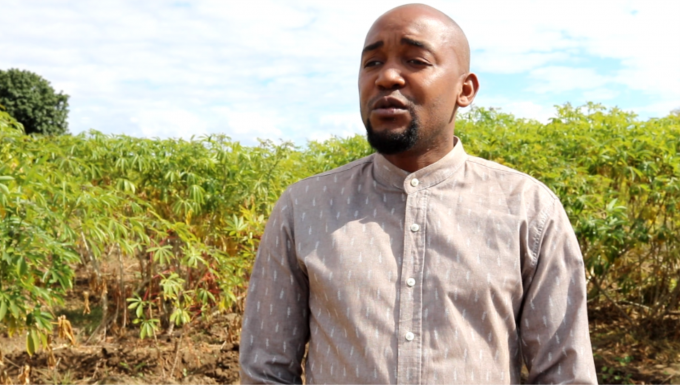
“We have, in the present campaign, three major programs that we are carrying out with Save the Children, one of which is the production of certified agricultural seed. We are currently producing corn seed here in the Kókwè community, where we planted 1.5 hectares in partnership with the IIAM. In addition to seed, we have the food production component. We have different varieties of fresh seasonal products, which is an asset for families. Mabalane is a semi-arid district where rain-based agricultural production is quite difficult. With this program and the water pumps, we already have families producing vegetables, cereals and some cash crops, which makes a difference in the 10 communities where the project is being implemented. In addition to food production, we have the capacity building component at community level. Just to highlight, these 10 communities were trained in Ascas (Village Savings and Loans). Thus we bring the spirit of producing not only for consumption, but also for sale to allow for some savings. These savings help families in a variety of ways because they can buy school supplies for children and provide basic health services and they can purchase some basic products”.
As he stresses, without this type of initiative, the communities would be exposed to hunger, since production in that part of Gaza depends on the rains. Without the intervention of the Government and its partners - he adds – people would be in a situation of threatened food security. “With this support we are able to guarantee food security in the families and communities”.
Rosa Júlio is the substitute of the head of the Mubangoene Administrative Post in Guijá, who says that Save the Children's strategy to work with communities in the form of associations is functional because several peasants can benefit from the same technical support at once. At the Mubangoene Administrative Post, for example, three associations have already benefited from the water pumps (Xinhacanine, Pumbe and Gunde).
“These associations are currently producing many crops there, although they are pumping water from a relatively long distance. It is producing positive effects. It helps us to educate our communities to save money and we have some groups that are already saving effectively and helping their families”.
Rosa Júlio also recognizes the role of the FSL-MNCH project in income-generating activities and in health, where women are encourages to attend regular prenatal checkups and make plans to deliver in the maternity to reduce child mortality.
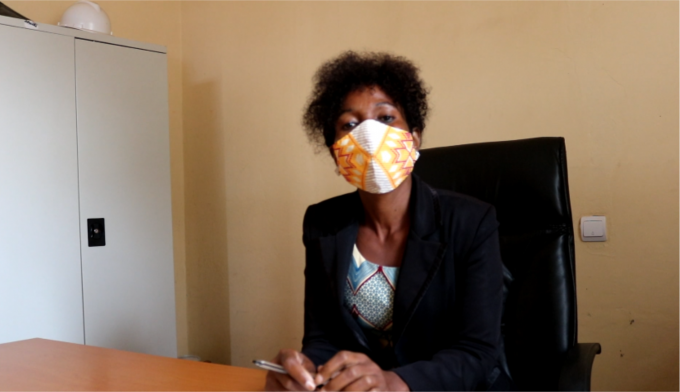
“We also appreciate the nutritional component that promotes fortified porridges for children from 6 months to 5 years old. Saving groups are something new in our community. They were unable to do this previously in a structured way and with the tangible results as we see now. People are now aware of how to save and how to generate income from activities. It is making a significant contribution to the development of our district and we want to see this expanded to other communities”.
Save the Children is trying to ensure that remote communities are not forgotten, so that every last child is reached. One of these communities is Matidze in Mabalane district, where there is a strong health component. Florêncio João Sambo, Preventive Medicine Technician in the District Health Directorate, classifies the Community Health Agents of the FSL-MNCH project as “the eyes and ears of the community's health”, so their support is valuable.
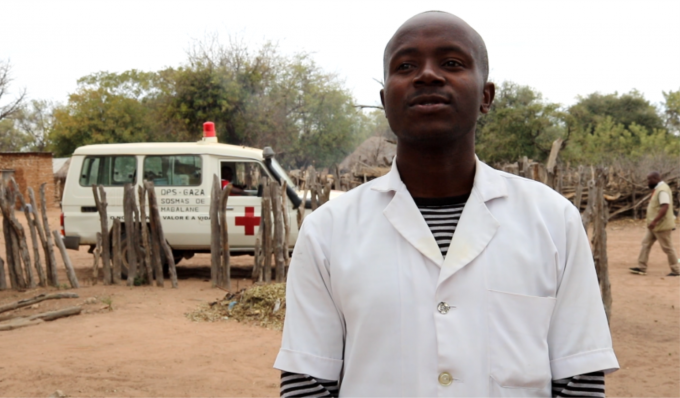
For Save the Children, the project is on the right track, as the success indicators shows encouraging progress. The groups are all aware of their mission as guardians of food security, and the importance of supporting the children and the development of their communities.
“From 2019 to now the areas under cultivation have grown a lot, as well as the variety of crops and their yields. It is already possible to see a bright horizon”, says the Project Coordinator, José Uqueio, noting that one cannot lose sight of the fact that the purpose is to benefit the child.
One of the project’s major challenges anticipated is in relation to the impact of COVID-19, since it may affect the supply chains, especially with regard to some seeds that have to come from outside the country, whose acquisition may now be more difficult. COVID-19 also affects the commercialize of produce, since people's movements have been restricted, especially through the Limpopo Corridor, which is a railroad that links Maputo to Harare and that crosses the project's implementation areas. The train's circulation boosts the local economy as it facilitates the flow of products, but with the pandemic, the corridor has been closed for months and its reopening date is still unknown.
 Mozambique
Mozambique 